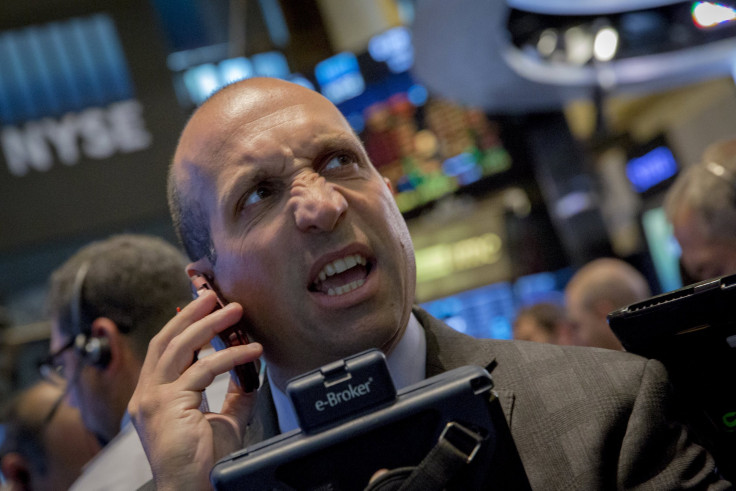Dow Jones Industrial Average Drops 100 Points As Media Stocks Tumble Ahead Of US Jobs Report

U.S. stocks closed lower Thursday, with the Dow Jones Industrial Average hitting a six-month low, extending its losing streak for a sixth straight day. Eight of the 10 S&P 500 sectors traded lower, led by declines in healthcare, consumer discretionary and information technology.
The Dow Jones Industrial Average (INDEXDJX:.DJI) dropped 102.72 points, or 0.69 percent, to close at 17,419.75. The S&P 500 index (INDEXSP:.INX) fell 16.28 points, or 0.78 percent, to finish at 2,083.56. And the Nasdaq composite (INDEXNASDAQ:.IXIC) lost 83.50 points, or 1.62 percent, to end at 5,056.44.
Media stocks pulled the consumer discretionary sector down more than 1 percent following a series of mixed earnings from Viacom Inc. (NASDAQ:VIAB), CBS Corporation (NYSE:CBS) and Twenty-First Century Fox Inc. (NASDAQ:FOXA). Media stocks have lost around 10 percent so far this week, on tract for its largest decline since October 2008.
The energy and utility sectors were the only advancers in the S&P 500, up 1.5 percent and 0.5 percent, respectively.
The Nasdaq composite fell 1.2 percent, driven by losses in healthcare, which pushed biotech stocks lower. The iShares Nasdaq biotechnology ETF (IBB) fell 4 percent, driven by losses from Biogen Inc. (NASDAQ:BIIB), Alexion Pharmaceuticals Inc. (NASDAQ:ALXN) and BioMarin Pharmaceutical Inc. (NASDAQ:BMRN).
Microsoft Corporation (NASDAQ:MSFT) led the Dow lower, shedding 2 percent, while Walt Disney Co. (NYSE:DIS) continued to decline, also dropping nearly 2 percent. Dow components Chevron Corporation (NYSE:CVX) and Exxon Mobil Corporation (NYSE:XOM) were the biggest gainers in the index, both up more than 1 percent.
Meanwhile, shares of Fitbit Inc. (NYSE:FIT) plunged nearly 14 percent Thursday, despite the maker of wearable health-tracking devices nearly tripling its sales from a year ago. The company posted narrower profit margins in its first earnings report as a publicly traded company.
However, strong financial health companies, like Fitbit, have more flexibility to pick and choose their own paths, says James Gellert, chairman and CEO at Rapid Ratings International Inc. If Fitbit were to have a bad quarter, they’ve got the strength to be able to withstand that, Gellert said.
“It’s still a relatively small company in terms of revenue, but it’s still a very sound one,” Gellert said. “At the end of the day, the more sound the financial health of company, the more options it has to adjust to a changing marketplace.”
Wall Street is looking ahead to Friday's employment report, which could provide more clues as to the timing of the Federal Reserve's inevitable hike in interest rates. Economists forecast U.S. employers created 223,000 nonfarm payrolls in July, with unemployment unchanged at 5.3 percent, according to analysts polled by Thomson Reuters.
The jobs situation in the U.S. has been very positive, says Brian Hamilton, chairman at Sageworks. Barring something catastrophic, the July number should reflect that. In the last five years, the unemployment rate has declined from 9 percent to just over 5 percent.
“During this time, the market has performed well, and private companies, which drive the majority of job creation in the U.S., have been consistently growing revenues and expanding their profit margins,” Hamilton said in a note Thursday. “When companies are performing well, they’re able to take on extra overhead in the form of hiring new employees, and you’re seeing that reflected in the falling unemployment rate.”
© Copyright IBTimes 2025. All rights reserved.




















